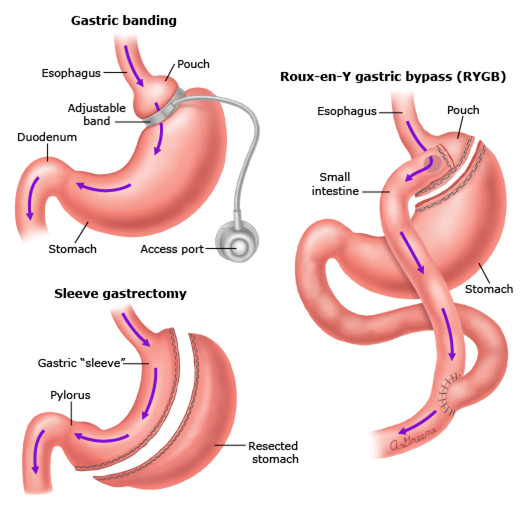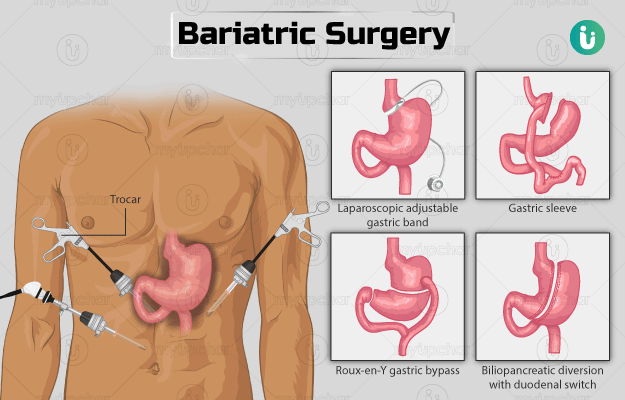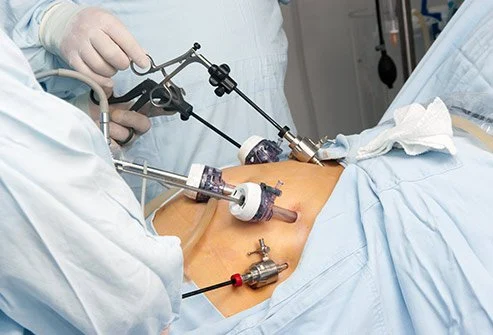Is Bariatric Surgery Safe
What Foods Cannot Be Eaten After Bariatric Surgery
If you're thinking about weight-loss surgical treatment, you're not alone. According to the American Society for Metabolic and Bariatric Surgical Treatment, over 250,000 individuals in the United States underwent weight-loss surgery in 2017. There are many aspects to think about prior to choosing if weight-loss surgery is right for you. In this article, we'll cover everything you need to learn about bariatric surgery, from the benefits and threats to the different types of surgery and what to expect prior to and after. We'll likewise answer some of the most frequently asked questions about weight-loss surgical treatment.
Is Bariatric Surgical Treatment Right for Me?
If you are more than 100 pounds overweight and have health problems that belong to being overweight, surgery might be right for you. In order to receive bariatric surgery, you should fulfill 2 requirements. Initially, your weight needs to be more than 100 pounds above your perfect body weight. Second, the illness triggered by being obese need to be present. For instance, if you are obese but do not have diabetes or hypertension, surgery might not be the very best option for you. After your procedure it is important to take a bariatric multivitamin to to maintain your health.

Is Bariatric Surgery Safe
After undergoing surgical treatment, it is essential that you make lifestyle modifications, such as minimizing calorie consumption and increasing exercise. If these changes are made and maintained in time, most people see significant improvements in their health. However, some individuals do experience setbacks after surgical treatment, such as gaining back weight they lost due to a lack of motivation or energy to maintain their brand-new way of life routines. If this occurs to you, please seek aid from your surgeon or therapist.
The Advantages of Bariatric Surgery
If you are overweight or obese, bariatric surgery might be a choice for you. Bariatrics is a kind of surgical treatment that assists people lose weight by reducing the size of their stomach. There are lots of benefits to having this surgery, some of which include:
- It can help you reduce weight.
- Lower your blood glucose levels.
- Aid improve your cholesterol levels.
- Lower your risk of heart disease.
Recovery From Bariatric Surgery
Individuals who have bariatric surgery often feel better and look healthier than in the past. The surgical treatment can assist you slim down in a healthy method, which is very important since diet plan and exercise alone often aren't enough to accomplish long-term weight loss. Additionally, bariatric surgery can help improve your cholesterol levels and reduce your threat of heart disease. Overall, the benefits of bariatric surgical treatment are numerous and substantial.
The Risks of Bariatric Surgery
Bariatric surgical treatment is one of the most popular types of surgical treatments worldwide. Nevertheless, like any type of surgery, there are risks associated with it. This post will check out a few of the dangers involved with bariatric surgical treatment and why they ought to be thought about prior to deciding to have it carried out. You will also need to follow the bariatric diet plans that were provided to you by your doctor or nutritionist.


Endoscopic Bariatric Surgery
Bariatric surgery is not for everyone. It is essential to comprehend that this procedure can result in several health concerns, both short-term and long-lasting. Obesity can lead to a number of health problems such as high blood pressure, heart disease, stroke, diabetes, and more. In addition, bariatric surgery can trigger major changes to your digestion system which could be problematic in terms of your total diet plan and nutrition.
Last but not least, it is necessary to understand all the threats included before choosing whether bariatric surgical treatment is right for you. Just after comprehending all the prospective risks will you have the ability to make an informed decision about having this procedure done.
Criteria For Bariatric Surgery
The Kinds Of Bariatric Surgery
When it concerns weight reduction surgery, there are a variety of choices readily available. This post supplies an introduction of the different types of bariatric surgical treatment and how they can help you slim down.
Gastric bypass is the most commonly performed kind of surgical treatment. It includes getting rid of part or all of your stomach and rerouting it so that it no longer helps with food digestion. The advantages of this surgery include lowered weight gain gradually, along with improved blood sugar levels and cholesterol levels.
Sleeve gastrectomy is another popular alternative for weight reduction surgical treatment. In this procedure, part or all of your stomach is eliminated, leaving just a small section called the sleeve around your jejunum (a part of your small intestine). This limits the amount of food that can be eaten at one time, which can lead to quick weight loss. Furthermore, sleeve gastrectomy might also minimize the danger for obesity-related health issue such as cardiovascular disease and diabetes.
Mini gastric bypass is a less intrusive version of gastric bypass that is in some cases recommended in individuals who have not responded well to other kinds of weight reduction surgical treatment. Mini gastric bypass involves developing a smaller stomach pouch by removing some tissue from around the top area of your stomach (the fundus). This minimizes the quantity of calories that are soaked up from food throughout food digestion, resulting in fast weight reduction results.
Duodenal switch is another less common however still reliable choice for weight reduction surgical treatment. In duodenal switch surgical treatment (DS), part or all of your small intestine is removed and changed with a synthetic tube called a stent. This allows more fuel and nutrients to be taken in from food than would generally be possible, which results in fast weight loss results.
Is Bariatric Surgery Safe

Bariatric Surgery Price
How to Get Ready For Bariatric Surgery
If you are thinking about bariatric surgical treatment, there is a lot you require to understand. In this post, we will talk about the importance of surgical treatment and what to anticipate throughout the treatment. We will also supply ideas on how to get ready for surgical treatment and go over the dangers and prospective problems related to the surgery. Lastly, we will provide some words of support in preparation for your journey ahead.
How To Get Insurance To Cover Revision Bariatric Surgery
Bariatric surgical treatment is a very essential step in handling weight problems and its involved health problems. It can help you slim down, enhance your cholesterol levels, and decrease your risk of diabetes. The main advantages of bariatric surgical treatment are that it is safe and has few issues. However, there are some things that you require to understand before you choose to have the surgical treatment. We will discuss these in detail below.
If you are thinking about bariatric surgery, it is necessary to understand the benefits and risks involved. Surgery is a safe treatment with few problems, but there are some things that you require to understand ahead of time. Off, bariatric surgical treatment can assist you lose weight rapidly and safely. Second, bariatric surgery can improve your cholesterol levels and decrease your threat of establishing diabetes over time. Third, many individuals report feeling much better after having bariatric surgical treatment-- both mentally and physically. 4th, while the threats connected with the procedure are fairly small (e.g., infection), they ought to be gone over with your physician prior to deciding about having the operation.
Bariatric surgical treatment is a procedure that weight reduction surgical treatments utilize. It utilizes different approaches to lower or remove fat from particular areas of the body (such as the stomach), which can result in significant weight loss gradually. Although there are many different kinds of bariatric surgeries available, they all share some typical features: they all need basic anesthesia; they all cause significant health modifications (both short-term and long-lasting); and they all bring risks connected with any significant surgical procedure.
Prior to deciding if bariatric surgery is right for you, it is necessary to comprehend how much weight you want to lose and your physical fitness objectives. Usually speaking, people who have bariatric surgery usually lose anywhere from 50% to 100% of their excess weight-- though private results might vary somewhat depending upon the particular treatment picked. There is no "perfect" amount of weight that someone need to lose before undergoing surgery; rather, your goal needs to be to attain a healthy bodyweight in accordance with your own physical capabilities and restrictions. Keep in mind that even after finishing a successful surgery program, there might still be fluctuations in your weight due to fluctuating hormones or food intake/losses within your overall diet/activity levels, and so on. However, now those changes will likely take place within healthy varieties instead of outside them, possibly leading to more major health consequences down the road, such as type 2 diabetes.
